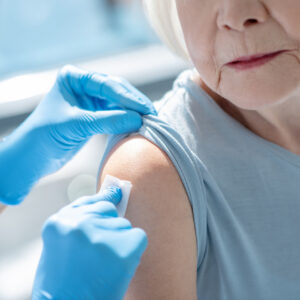Still Going: What’s Happening Now- And Going Forward- With Covid?

Still Going: What’s Happening Now- And Going Forward- With Covid?
August 2, 2023
It may feel like the days of Covid are behind us, but if that’s your perspective (and a June Gallup Poll reported that 64% of Americans believe this), consider yourself misinformed. Because Covid is not only still here, but there appears to even be an increase in cases this summer after many months of numbers trending downward. There’s been an uptick of virus found in wastewater analysis, of patients seeking Covid care in ERs, and even in hospitalizations due to Covid (mostly of older adults). However, deaths have not risen and the good news is that this uptick is not a surge the way we’ve seen in the previous several summers of Covid. It’s hard to know for sure what’s happening, given that people now test at home, so positive tests may not be reported, but as Ashish Jha, the former White House Covid Response Coordinator has made clear, most people, with just a few basic steps, can safely return to their pre-pandemic activities, even with the increase in infections. What are his recommendations? Make sure your vaccinations are up-to-date, an important caveat given that less than half of adults over 65 took advantage of receiving last fall’s bivalent booster shots. It’s also important to note that those who are up-to-date with vaccinations are less likely to be afflicted with long Covid. Next, if you do become infected, avail yourself of the highly effective treatments now available, such as Paxlovid, which drastically cuts down your risk of serious illness and hospitalization. As well, there are recommendations for testing at home if you begin to feel unwell. Remember, a positive test is necessary for you to be treated with Paxlovid, so don’t assume it doesn’t matter if you get tested or not.
Speaking of testing, you likely have many at-home tests laying around. Even older, non-expired tests seem to pick up the new Omicron XBB.1.5 variant that is now circulating but remember, these tests are never 100% accurate. If you are concerned you are infected but not symptomatic, experts recommend you take 3 separate tests over several days to determine your status. Those who feel symptomatic are advised to take 2 tests 48 hours apart to confirm an infection.
Regarding this new variant, there will be a new vaccination released to the public in the coming months (likely September) that targets the now circulating Omicron XBB subvariants and that has been recommended by an FDA Advisory Panel. Even if you are currently up-to-date on your Covid vaccines, if you are older or have a known risk (immunocompromised or afflicted with other chronic health conditions) you will likely want to get this new vaccine as soon as it’s available, as it’s possible your immunity from previous vaccines (or from having Covid) has waned by now. The CDC has not yet formally advised specific groups of Americans to get this new vaccine, but it will probably include adults 75 years old and older, those with compromised immune systems, and pregnant women, so keep an ear out for when these new vaccines become available to the public.
Finally, this fall there will be one additional vaccine that older adults should really avail themselves of. While at this point you may have “vaccine fatigue,” it is recommended that you also receive the RSV vaccine as soon as it becomes available. There will be 2 RSV vaccines available (Arexvy from GlaxoSmithKline and Abrysvo from Pfizer) both of which are FDA approved and considered highly effective against RSV. In fact, these vaccines are so effective that you may only need to be inoculated every other year. As we’ve previously written, RSV can become serious in older adults and is the cause of thousands of deaths each year. So while you may be tired of rolling up your sleeve and experiencing a sore arm, the consequences of RSV (or flu or Covid for that matter), especially in older adults, should compel you to rethink your vaccine fatigue and stick out your arm. For more on this new RSV vaccine, read here.







